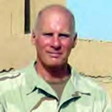|
Op-Ed
 |
Equality in the
Military:
"A Social Experiment?"
by
Wes Davey, MSG, USAR (Ret.)
|
It wasnít a surprise to anyone when the
GOP presidential candidates all agreed that gays
and lesbians should not be allowed to serve
openly in our military - their position comes
straight from the Republican Party play book.
Still, two of the candidates Ė former
Gov. Mitt Romney and former Mayor Rudy Giuliani
Ė took their opposition to repealing "Donít
Ask, Donít Tell" a step further by
asserting that "social experiments should
not be conducted in time of war"; which
should have left the 79% of Americans who favor
repeal wondering how Mitt and Rudy turned
"equality" into a "social
experiment."
Political pundits reported those comments
made in the Manchester debate, but few seemed
willing to challenge either part of that flawed
assertion, the "social experiments",
or "in time of war" - neither of which
is supported by our history or by the reality of
todayís military. Mitt and Rudy need to look
no further than the history of World War II to
learn that "social experiments"
(giving "equality" to those without)
in "time of war" does work and has
helped our past war efforts.
During WWII conservative politicians and
War Department generals alike were skeptical
that Japanese Americans could be trusted to
serve in our military. With patriotic zeal and a
desire to prove they deserved equality, young
Nisei men eagerly joined the 442nd Regimental
Combat Team ("Go For Broke"), and then
served with great distinction in the European
theatre of war.
Those same politicians and generals
questioned whether African Americans had the
intelligence and the guts to fly planes in
critical war-time missions. Their questions and
skepticism were quickly put to rest when the
Tuskegee Airmen finished their training and
began flying in the flak filled skies over
Europe. The Tuskegee Airmenís example of
outstanding service during WWII was surely a
catalyst to the integration of our military not
long after the war.
Navajo-speaking Native Americans enlisted
in the Marine Corps in order to use their unique
and virtually undecipherable native language to
help defeat the enemy in the Pacific theatre of
war. Despite prior skepticism of this
"social experiment", no one can doubt
the great value of the "Code Talkers"
as they served in missions fought by the Corps
on those faraway islands. One can only guess how
many American lives were saved by this
"social experiment."
The "Go For Broke" regiment, the
"Tuskegee Airmen", and the
"Navajo Code Talkers" are all now
revered in the annals of American military
history. In their own ways, they demonstrated to
the skeptics hiding in the hallways of Congress
and the generals cloistered in the corners of
the War Department that they were wrong.
Those who
object to repealing "Donít Ask, Donít
Tell" would argue that such repeal canít
be compared to bringing equality to Japanese
Americans, African Americans, and Native
American during WWII. They then rely on their
often repeated contention that straight service
members wouldnít feel comfortable serving with
gay service members, enlistments would plummet,
and the strength of our military would be in
jeopardy. Replace "gay service
members" with "African Americans"
and you have the same arguments that were used
60 years ago when the integration of our armed
forces was being discussed.
Further, our allies around the world heard
these same arguments a decade or more ago when
they addressed this issue. Great Britain,
Israel, Germany, Spain, Australia, France, and
many other American allies set aside the
homophobic fears advocated by some, and then
allowed gays and lesbians to serve openly. The
experiences of our allies have unequivocally
shown those prior homophobic fears to have been
unfounded.
And yet there are some in Congress and in
the Pentagon who would like us to believe that
the attitudes of our service members are
different from those of our allies, and that
chaos would ensue if gays served openly.
The reality is that younger service
members today donít carry the same homophobic
prejudices of the older generations, as
evidenced by a much quoted Zogby poll: 73% of
returning vets from Iraq and Afghanistan are
comfortable in the presence of gays and
lesbians.
Finally, the "in time of war"
needs to be addressed further here.
President George W. Bush and his followers
have often stated that the "War on
Terror" will last for decades to come Ė
perhaps 50 years or longer. Indeed, this war on
terror has now been identified as the "Long
War."
Do these candidates credibly believe our
country will sit on this issue for another
half-century? Does it make any difference to
them that most Americans believe gays and
lesbians should be allowed to openly serve in
our military?
Those of us
who support repeal are not going to wait that
long for equality. At most, we begrudgingly
acknowledge the political reality that "Donít
Ask, Donít Tell" will not be repealed
during the Bush administration. But longer than
that Ė no; we will not wait longer. And come
2009, the new president and the 111th Congress
will repeal "Donít Ask, Donít
Tell." Of that there can be no doubt, no
skepticism.
|